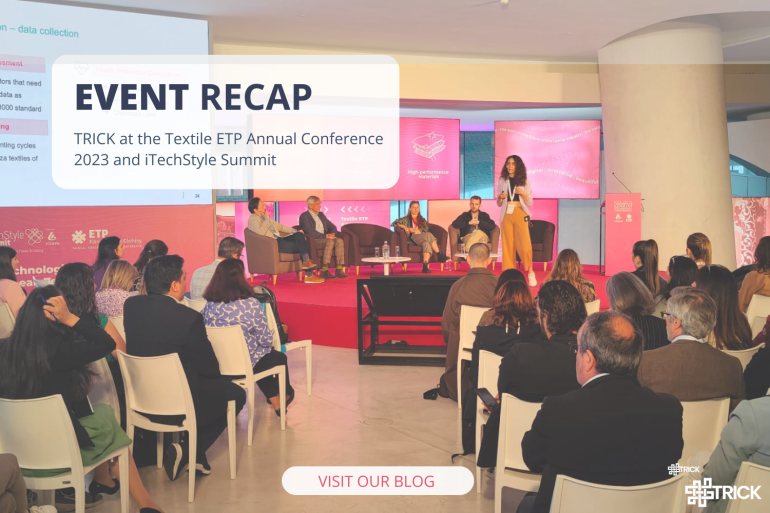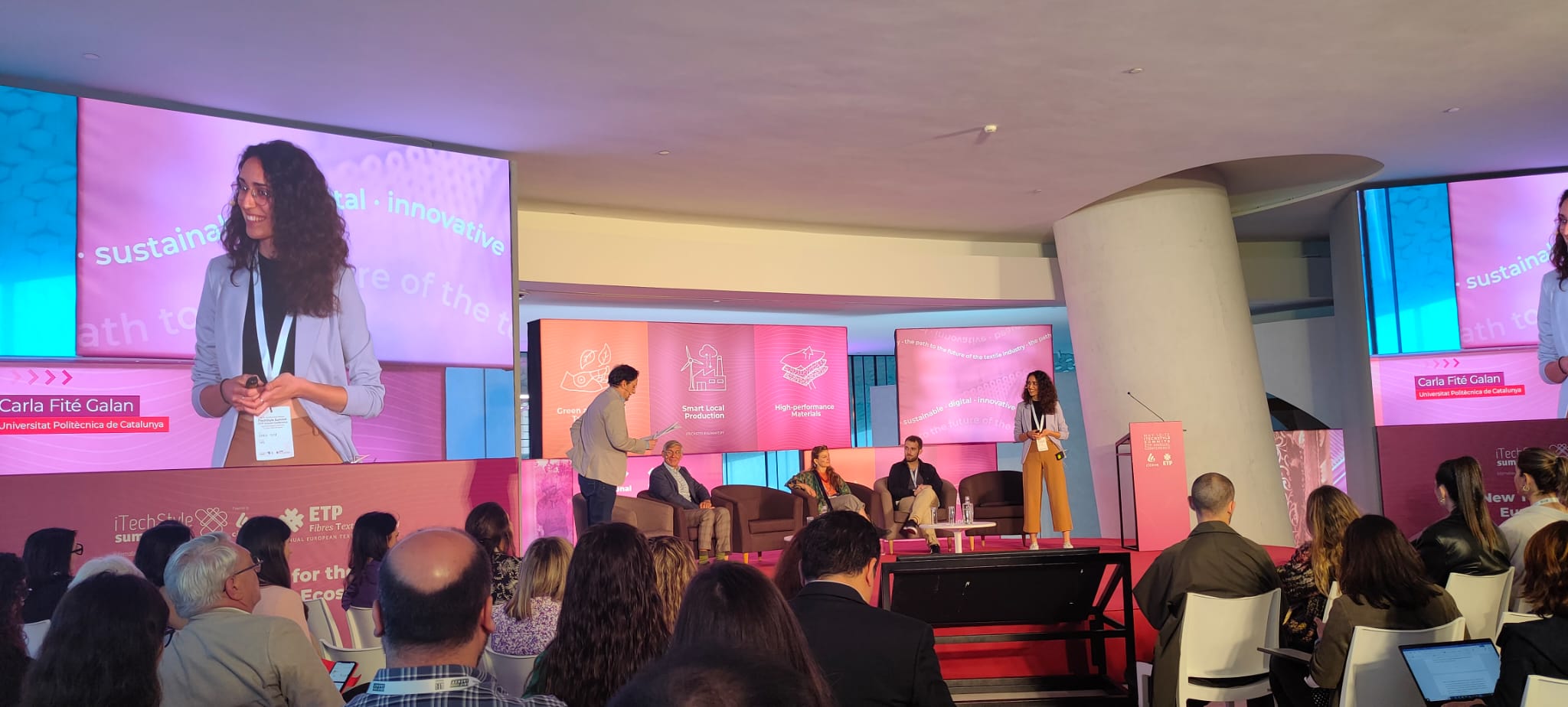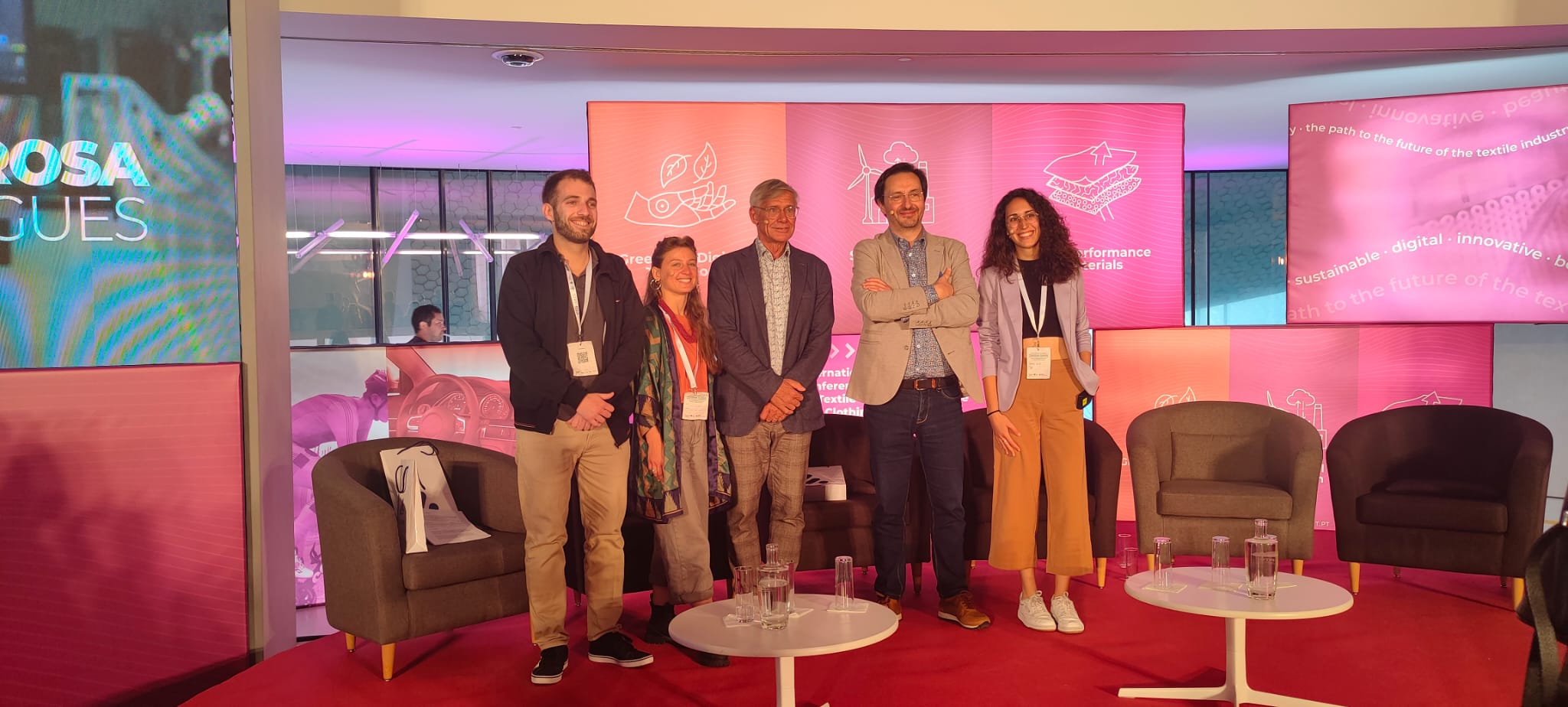Positive Impacts:TRICK at the Textile ETP Annual Conference 2023 and iTechStyle Summit

On May 11th, industry professionals and enthusiasts gathered at the esteemed ItechStyle Summit and ETP conferences in Porto, Portugal. Among the many remarkable sessions held, one particular presentation captured attention—the TRICK project. Led by Carla Fité (UPC), accompanied by Dieter Stellmach (DITF) and two more speakers, the presentation showcased the groundbreaking approach to Ecodesign and Digital Product Passport (DPP).
Carla Fité, an expert from the UPC, took the stage and enthralled the audience with the latest advancements in the TRICK project. She presented the implementation progress of the TRICK platform, specifically highlighting its commitment to meeting the Ecodesign requirements set forth in the ESPR regulation and the upcoming Digital Product Passport. The audience was captivated by the unique eBiZ based data model and the seamless integration of the IT architecture with blockchain smart contracts, solidifying TRICK's position as a game-changer.

Image Credits: UPC
The presentation delved into the development status of the six services within TRICK, shedding light on the data requirements for each service. Attendees marveled at the traceability backbone that supported these services, recognizing the potential for collecting invaluable data sets. Furthermore, the pilot status of the TRICK project was unveiled, offering a glimpse into how this platform would validate and leverage these data sets to drive sustainable, ethical, and environmentally conscious practices within the industry.
TRICK was introduced as a potential digital traceability solution, utilizing the power of blockchain technology to enable circularity within the textile value chain. The audience resonated with the notion that transparency and trust were pivotal for a successful transition towards circularity, making TRICK a key player in fostering a sustainable future.
Dieter Stellmach took the stage and delivered a captivating speech on the paramount importance of transparency and circularity assessment in advancing towards a circular economy. The audience was captivated by his insights, recognizing the urgent need for such assessments to drive meaningful change within the industry.
The showcase sparked interest among the attendees, leading to valuable connections with other projects and initiatives focused on digital solutions for a more transparent textile value chain. One aspect that piqued the audience's curiosity was the standardized data model created by TRICK, which has potential applications in other initiatives. Additionally, concerns were raised about the energy consumption associated with blockchain solutions. These queries prompted insightful discussions and further exploration of TRICK's energy-efficient approach.
Image Credits: UPC
During the presentation, an engaging exchange of questions and answers ensued, shedding light on the main challenges of implementing traceability solutions like TRICK. One prominent concern revolved around ensuring the reliability of data through quality and validity measures. Carla addressed this concern admirably, highlighting how TRICK's traceability and Product Circular Outcome (PCO) services would combat false declarations and instill trust within the textile value chain. She acknowledged that the project's scope doesn’t cover the integration of physical tracers, although this aspect is being considered for TRICK's future exploitation.
The participation of TRICK at the ETP conferences left a lasting impact on the textile industry. With its approach to traceability and circularity, TRICK aims to transform the way we perceive and interact with textiles. The audience departed with a renewed sense of optimism, eagerly anticipating the sustainable, transparent, and ethically driven future that TRICK aims to create.

Image Credits: UPC
Join our community: sign up for our newsletter to stay informed about news, events, and project updates.